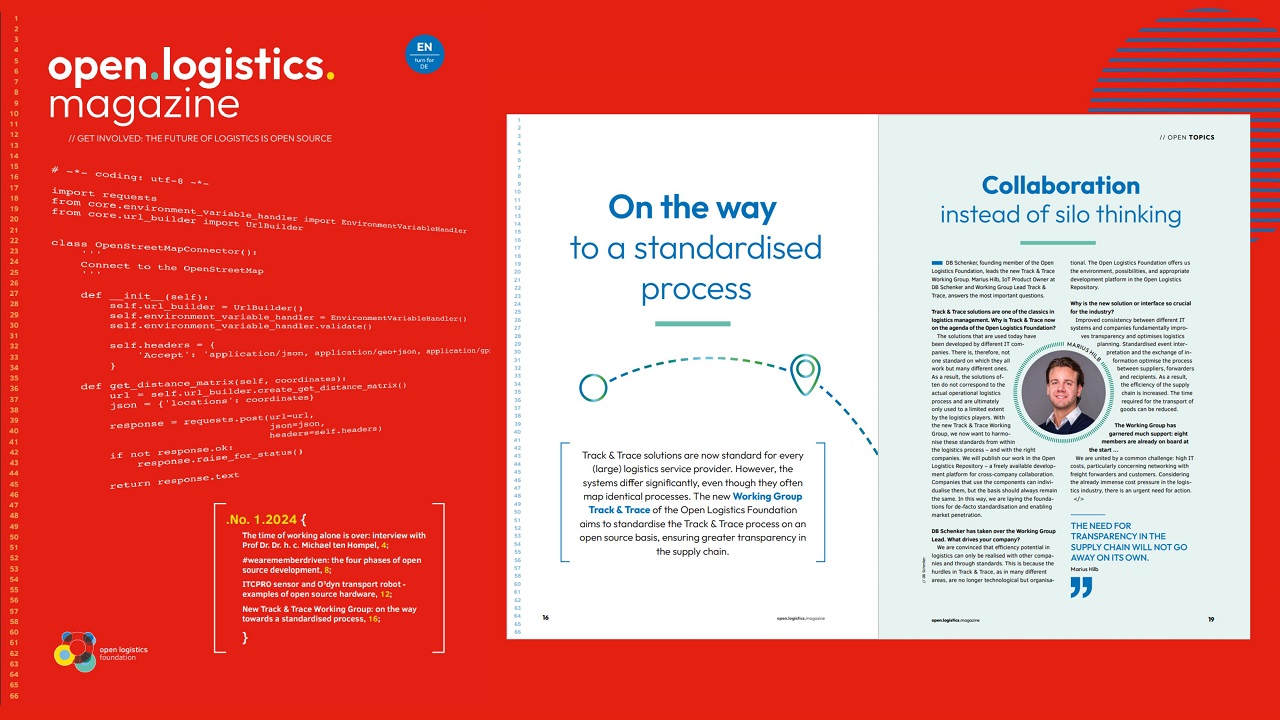Track & Trace solutions are one of the classics in logistics management. Why is Track & Trace now on the agenda of the Open Logistics Foundation?
Marius Hilb: The solutions that are used today have been developed by different IT companies. There is, therefore, not one standard on which they all work but many different ones. As a result, the solutions often do not correspond to the actual operational logistics process and are ultimately only used to a limited extent by the logistics players. With the new Track & Trace Working Group, we now want to harmonise these standards from within the logistics process – and with the right companies. We will publish our work in the Open Logistics Repository – a freely available development platform for cross-company collaboration. Companies that use the components can individualise them, but the basis should always remain the same. In this way, we are laying the foundations for de-facto standardisation and enabling market penetration.
DB Schenker has taken over the Working Group Lead. What drives your company?
Marius Hilb: We are convinced that efficiency potential in logistics can only be realised with other companies and through standards. This is because the hurdles in Track & Trace, as in many different areas, are no longer technological but organisational. The Open Logistics Foundation offers us the environment, possibilities, and appropriate development platform in the Open Logistics Repository.
Why is the new solution or interface so crucial for the industry?
Marius Hilb: Improved consistency between different IT systems and companies fundamentally improves transparency and optimises logistics planning. Standardised event interpretation and the exchange of information optimise the process between suppliers, forwarders and recipients. As a result, the efficiency of the supply chain is increased. The time required for the transport of goods can be reduced.
The Working Group has garnered much support: eight members are already on board at the start …
Marius Hilb: We are united by a common challenge: high IT costs, particularly concerning networking with freight forwarders and customers. Considering the already immense cost pressure in the logistics industry, there is an urgent need for action.
“The need for transparency in the supply chain will not go away on its own.”
Marius Hilb
This interview was published in the third edition of the Open Logistics Magazine. You can read the entire magazine and register for future editions here.





